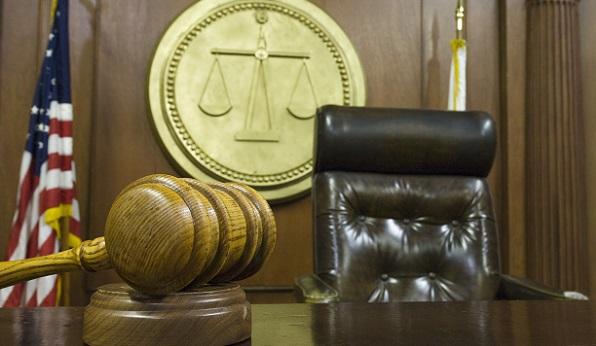George Floyd’s Death Not Due to Cardiac Event, Cardiologist Testifies
Derek Chauvin’s defense team has argued that underlying heart disease caused Floyd’s death. Cardiologist testimony rejects that.

Cardiology is playing a key role in the trial of former police officer Derek Chauvin, charged on three counts for allegedly killing George Floyd last summer. During the third week of testimony, Jonathan Rich, MD (Northwestern University, Chicago, IL), became the first in the cardiology profession to take the stand in this trial.
The question for jurors is whether Chauvin’s actions, when he pressed his knee into Floyd’s neck on the asphalt for 9 minutes and 29 seconds, led directly to the 46-year-old Black man’s death. The prosecution, led by the Minnesota attorney general's office, says the answer is yes. The defense, in response, is sowing doubts about Floyd’s health by claiming that underlying heart disease was critical. Chauvin faces up to 40 years in prison if he is found guilty of second-degree murder, the most serious charge at hand.
Several medical witnesses, including a pulmonologist, pointed to asphyxiation as the cause of death.
Andrew Baker, MD, the medical examiner who did Floyd’s official autopsy, said that while drug use and heart disease had contributed to his death, the root cause was what he listed on the death certificate: “cardiopulmonary arrest complicating law enforcement subdual, restraint, and neck compression.” Baker said underlying heart disease might have made Floyd more vulnerable in stressful, adrenaline-producing situations, but that he continues to believe the manner of death was “homicide.”
Lawyers for the defense have repeatedly brought up Floyd’s history of drug use as well as the signs on autopsy of “hypertensive heart disease” and narrowed arteries (90% stenosis in the RCA and 75% stenosis in the LAD).
Yesterday in the courtroom, prosecutor Jerry Blackwell asked Rich, who specializes in advanced heart failure and transplant cardiology, for his expert opinion on the cause of death.
“Mr. George Floyd died from a cardiopulmonary arrest that was caused by low oxygen levels, and those low oxygen levels were induced by the prone restraint and positional asphyxiation that he was subjected to,” Rich specified, later stating that Floyd did not die due to a “primary cardiac event,” such as ventricular arrythmia. Nor did fentanyl or methamphetamines play a “substantive role,” he added.
His conclusion: “I believe that Mr. George Floyd’s death was absolutely preventable.”
Chauvin’s attorney Eric Nelson, in cross-examination, called out the fact that Rich is not a pathologist and again drew attention to Floyd’s cardiovascular disease and drug use. In a memorable exchange, he also posited that the “prone position is not in and of itself inherently dangerous.” Rich conceded that for most people simply lying flat on their stomach wouldn’t cause harm.
“Even in the ICU, there are circumstances where people have serious medical conditions where they’re maintained in the prone position,” Nelson said, continuing to press his point. To this, Rich replied: “In the ICU when patients are put into the prone position, it is a desperate attempt to save someone’s life” when they’re experiencing acute respiratory distress syndrome. “They have a ventilator in to make sure that the amount of air they get no matter their positioning will always be enough. . . . They’re usually on sedation as well to keep them comfortable,” he emphasized.
Just the Latest Chapter
Floyd’s death on May 25, 2020, was a pivotal moment for the Black Lives Matter movement across the United States. It also galvanized many in the cardiovascular community.
As reported by TCTMD, within days the Association of Black Cardiologists, the American Heart Association (AHA), and the American College of Cardiology had issued a joint letter condemning acts of violence and racism, and voicing concern about the cardiovascular toll associated with grief and stress. The AHA also issued a separate statement urging changes in healthcare policy to improve the lives of Black Americans.
The field has continued to evolve. Ahead of the AHA’s 2020 virtual scientific sessions, the organization issued an advisory that called out structural racism as a fundamental driver of health disparities then went a step further by listing concrete steps to dismantle it. Now cardiology journals have begun to take first steps toward undoing racism in medical publishing, and review articles are discussing how best to achieve an antiracist culture in cardiology.
Regarding the Chauvin trial, the ACC told TCTMD it holds no specific position, but did highlight the group’s ethical standards for cardiologists who give medical testimony.
Caitlin E. Cox is Executive Editor of TCTMD and Associate Director, Editorial Content at the Cardiovascular Research Foundation. She produces the…
Read Full Bio




Comments